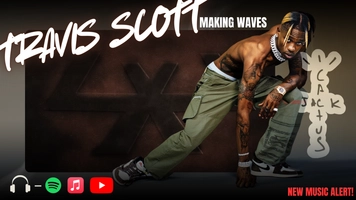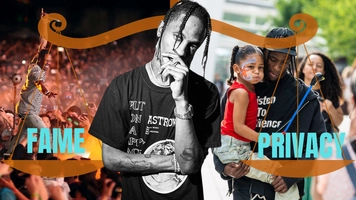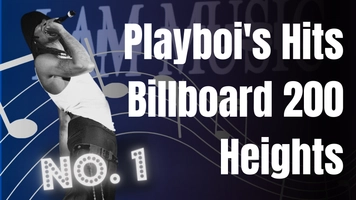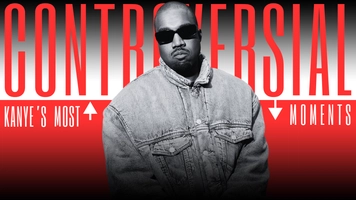The Evolution of Travis Scott’s Lyrics: From Rodeo to Utopia
Share your thoughts on the magnificent evolution of Travis Scott’s lyrics from rebellious to a more introspective narrative.
Published Oct 28, 2024
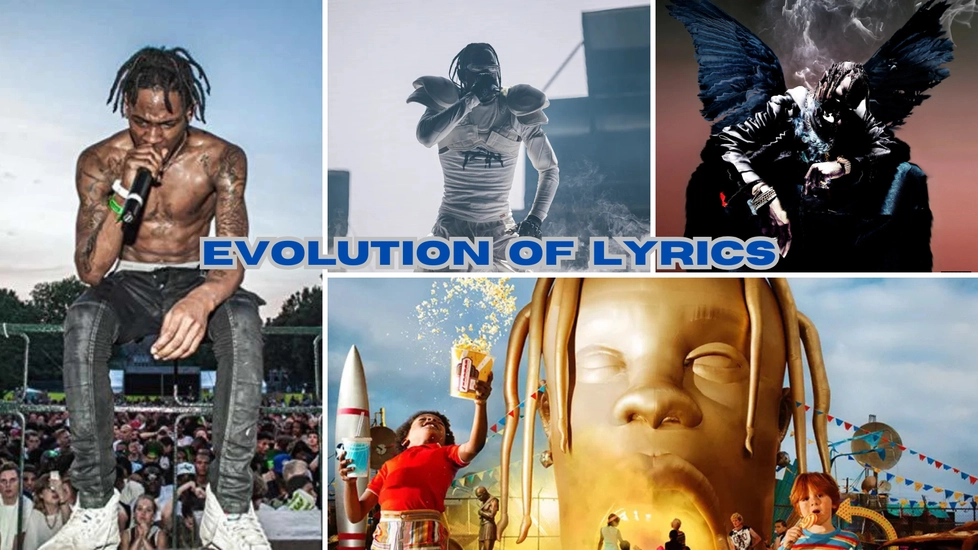
Table of Contents
- Rodeo (2015): Raw Ambition and Rebellion
- Birds in the Trap Sing McKnight (2016): Loneliness and Isolation
- Astroworld (2018): Nostalgia and Self-Reflection
- Jackboys (2019): Collaboration and Creative Expansion
- Utopia (2023): Existential Exploration and Deeper Self-Awareness
- Changes in Worldview
Travis Scott’s lyrical evolution across his career is marked by his changing perspectives on fame, relationships, personal struggles, and self-identity. The evolution in his lyrics highlights his transformation from a young, ambitious rapper to an artist deeply reflective of his personal and professional journey, using his experiences to redefine his themes and lyrical approach. He uses a creative process that makes his work shine and evolve over time. Here’s the list of how his lyrics have evolved over time.
Rodeo (2015): Raw Ambition and Rebellion
In Rodeo, Travis Scott’s lyrics center around the excitement of his rising fame and the rebellious, fast-paced lifestyle that comes with it. Songs like “Antidote” and “3500” focus on nightlife, freedom, and the thrill of breaking boundaries, capturing his early enthusiasm for fame and success. His lyrics are filled with bravado and pride, showcasing an artist at the start of his journey, eager to claim his place in the music world and enjoy the benefits of newfound fame without much self-reflection.
Birds in the Trap Sing McKnight (2016): Loneliness and Isolation
With Birds in the Trap Sing McKnight, Scott’s lyrics begin to hint at the downside of fame, especially loneliness and the emptiness that often accompanies success. Tracks like “Through the Late Night” and “Coordinate” still celebrate the highs of fame, but there’s an underlying sense of distance and disillusionment. Scott begins exploring themes of isolation and the challenges of maintaining personal connections amid his hectic lifestyle, laying the groundwork for more introspective and emotionally complex themes.
Astroworld (2018): Nostalgia and Self-Reflection
Astroworld marks a turning point in Scott’s lyricism, as he begins to reflect on his roots and the emotional impact of fame. Songs like “Stop Trying to Be God” reveal a more introspective side, where Scott questions his role and the pressures of being idolized. Nostalgia also plays a key role in this album, as he revisits memories of Houston and captures the bittersweet nature of returning home while realizing he has changed. Scott’s lyrics reflect a growing awareness of his identity, blending pride in his success with moments of vulnerability and self-doubt.
Jackboys (2019): Collaboration and Creative Expansion
While a collective project, Jackboys shows Scott embracing his role as a mentor and label head. His verses in this collaborative effort exude confidence and experimentation, further cementing his influence on trap music. The lyrics across the album, while more focused on flexing and lifestyle, reveal Scott’s dedication to pushing his sound and bringing his team into the spotlight, signaling his transition from an individual artist to an industry leader.
Utopia (2023): Existential Exploration and Deeper Self-Awareness
In Utopia, Scott reaches a new level of thematic depth, exploring existential questions, the meaning of success, and the toll fame has taken on his mental health. His lyrics in songs like “FE!N” and “Lost Forever” delve into themes of inner conflict, showing an artist who has achieved everything but still feels incomplete. Scott’s reflections on relationships, fame, and his purpose take center stage, revealing a more contemplative side as he grapples with his identity and the cost of his success.
Changes in Worldview
From Celebrating Fame to Questioning Its Value
Scott’s early worldview is largely centered around celebrating fame and success, viewing it as an achievement and validation of his talent. However, as he matures, his lyrics begin to question the real value of fame, recognizing the isolation and pressure it brings.
Embracing Vulnerability and Self-Reflection
Over time, Scott’s worldview shifts toward a more introspective, vulnerable perspective. He reveals a desire for genuine connection, stability, and inner peace, moving away from a focus on material success to exploring mental health, loneliness, and personal growth.
Evolving Purpose and Authenticity
By Utopia, Scott’s lyrics reflect a desire to find meaning and purpose beyond external achievements. He begins to explore the idea of authenticity, questioning his own identity and his role as an icon, ultimately embracing the importance of self-awareness and personal fulfillment.
Conclusion
Across his discography, Travis Scott’s lyrics capture the highs and lows of his journey, mirroring his evolution as an artist and individual. From Rodeo’s youthful defiance to Utopia’s introspective exploration, Scott’s lyrical progression underscores his growth, revealing an artist unafraid to navigate—and redefine—his identity in an ever-changing musical landscape.
Also Read:
Write a comment
Comments
No Comments Yet
Trending
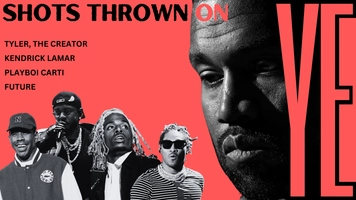
Ye’s Latest Rants: Attacks On Kendrick Lamar, Playboi Carti, Future & More
Amanda Lee Swanson
• Mar 23, 2025

